- Home
- B. V. Larson
Shifting Page 2
Shifting Read online
Page 2
“There was a car crash, and you were hurt.”
She looked at her wrist and winced as she touched her head with her good hand. “Where is Ron, and Billy?”
“Um,” I said, “What do you remember?”
“We left the city,” her eyes were searching the ceiling for answers. The fingers of her good hand probed her injuries delicately. “I was with Billy and his father, there were so many terrible things on the road. We turned into the wood. Something…. Something bad appeared in front seat. It hurt Ron, we crashed.”
I nodded. “Ron was driving?” I asked.
“Yes, Billy is only eight.”
“Well, I’m afraid Ron died in the crash. But we didn’t see any sign of Billy.” Even as I said it, I had a sudden, dark thought. “The boy, was he sitting up front with his father?”
“Yes, what?” she looked at me quizzically. Her eyes were dark with pain, grief, fear and shock. She looked too wrung out to cry anymore. I knew the look well.
“Nothing,” I said gently.
We rigged up some tape and sticks and a crude sling for Monika. When she was able to function, we all ate dinner from our stash of emergency rations. There was a moldy half-loaf of white bread we had rummaged out of Billson’s market downtown, venison jerky from last winter’s hunting and peaches in jars our mother had laid down years back.
The cabin had been our folks’ place before the meter-reader from Indiana-Michigan Power had grown claws and a head like a pumpkin one day. The meter man had begun methodically killing everyone on his route, including Dad, until a concerned citizen had put a dozen rounds in that mushy skull and stopped him. I’d never really been sure what had happened to my mother. She had died in the woods the same day as my dad, but I never knew who—or what had done it. From the pieces I’d found, I knew she was dead, and that’s all I knew. Now Vance and I owned the cabin.
It was cooling down fast outside, so I lit a fire in the ash-choked stone hearth. Feeling expansive, I fired up the generator long enough for everyone to have a hot shower. Nothing feels quite as good as a hot shower after days of running around in the woods. After dinner and bathing and some fresh clothes, Vance and I cracked open beers and Monika had some coffee and lit a cigarette. I didn’t smoke myself, but it didn’t bug me.
She noticed me watching her. “I quit when I was teen,” she said apologetically. “But today I make special day.”
I nodded. Today was indeed a special day. We had had a lot of them lately. I wondered if she really had any idea yet how special things were.
After a while, she carefully extinguished the cigarette and tucked it back into her crumpled little pack. I could tell this was a woman who knew how to make things last.
Vance was haunting the front window, peeking through the cheap, dusty, mini-blinds. “Anything out there, Vance?” I asked.
He shook his head.
“Just the same,” I said, “I think we should turn off the gen and use the Coleman.”
“Good idea, no point in wasting fuel.”
Monika watched us closely, frowning slightly. I wasn’t sure if she was picking up on our worries or if she was just concentrating on English.
“Tell us your story,” I said to her.
She looked very pretty now with washed hair and she even managed to flicker a smile at me. I liked her smile. Foreign girls never seemed to smile as much as American girls did. To me, her first smile was an important event.
“You read my profile,” she shrugged. “I came to U.S. in April, to Louisville. The family was nice. There were three kids, Billy and twin girls. Bad things started in the news, strange things. You know. But we didn’t really think it would get to us. So suddenly, things went bad. One day, the mother left with the twin girls…”
A shadow passed over her face, and suddenly I regretted asking her.
“They didn’t come back. Ron looked for them, I took care of Billy, but days went by. One day he came back bleeding—Ron did. Then, after few more days, he decide to try to make it up to Canada to his Uncle’s house. He showed me pictures. I didn’t know what to do; they had already closed the airports. Anyway, we didn’t make it. You can see.”
By the end she was struggling not to break down. Her story was vague, but it was her story. I made a mental note not to pry. I saw some tears and I nodded sympathetically. I resisted the urge to reach out and touch her, to comfort her, fearing she might take it the wrong way.
Vance didn’t miss the cue, however. He slid up next to her and put an arm around her shoulder. She responded immediately by touching her head to his chest and closing her eyes briefly. He opened his mouth and privately showed me a bit of tongue, gloating. My jaw muscles bulged as I clenched my teeth and gave him a tight smile. I hated him sometimes.
Monika lifted her head back up and edged away a bit so that she was no longer in contact with him. I watched approvingly as she sipped her coffee. Vance looked disappointed.
Then we all froze. There was a tearing sound up on the roof. It was a long tearing sound, like that of ripping cloth.
“The tarps,” I said, knowing in an instant what it was. My dad had always been a bit of a Scotsman at heart when it came to repairs. A few years back Thorson’s downtown had wanted twelve thousand bucks to replace the cabin roof and Dad had decided to let it ride another year. In the spring rains, the leaks had come, and in a pinch he bought a stack of those cheap, blue, plastic tarps that every department store carried and tacked them down in layers up there. It worked so well, he had let it ride a few more years.
In that slow-motion instant while we jumped to our feet and grabbed weapons in my mind I heard Dad saying—”They look like hell, but I can afford a shitload of tarps for twelve grand, Gannon.”
And now, something was ripping its way through them.
I drew my saber and backed across the living room. I needed room to swing it without hitting someone. Vance held up the pistol he had lifted off Ron. I saw now it was a .38. He put three rounds into the ceiling where the wood was looking a bit pregnant and then the gun misfired and smoked so he dropped it.
He moved toward his rifle, which he had left leaning against the front door. He always did that. You could not forget a rifle that bumped you in the knees on the way out.
Monika was staring at the ceiling, horrified. She still sat against the wall at the kitchen table. I moved to stand between her and the ceiling, which was bulging now. There was nothing under those tarps I knew but plywood—and us. The sounds had shifted from tearing cloth to creaking and shredding. They were like the sounds a lath and plaster wall makes when you dig a crowbar into it.
“How the hell did it get up on the roof?” shouted Vance.
“I don’t know, maybe it jumped up there, those prints outside were deep.”
I held grandpa’s saber up with my arm fully extended, just as I’d learned in a fencing class back in a junior college course I’d taken. Vance thought I was a romantic fool, but I really did prefer the sword at close range and against this type of enemy. It always worked and you never had to reload.
I glanced at Monika, she had produced and unfolded a pocketknife, probably from her pack. I was glad to see she was prepared to do what she could. I’d see plenty of people taken down who might have been able to save themselves, but who seemed too horrified and surprised to fight for their lives. In these new days, our deeper, more animal instincts served us well.
The ceiling gave way and Vance’s Mauser boomed at the same moment. The thing that came down was one of the types we called trolls. It was as big as a large dog, but shaped more like a humanoid with overlong arms and curved claws instead of hands. It had bristly reddish-brown hairs that stood out in a stiff spray from its body. One leathery foot was splashed red, showing that not all of Vance’s shots had missed. The troll-thing landed on the sofa and perched on the back of it for an instant, between me and the cheerily burning fire. Before Vance could blow it away, it sprang impossibly fast, shrieking. Huge curved claws s
till full of splinters reached for me.
It was when the troll sprang at me that I saw the face. It had the face of a famished idiot, which I had expected, but the eyes were bright blue and very human. They looked like they belonged on a little boy’s pale face. They were Billy’s eyes, of course. I realized too, that the troll was looking past me with those strange, haunted eyes. It was trying to get to Monika, not me. It wanted to finish the job it had started out on the highway, and I was in the way.
The thing once called Billy opened its fanged mouth shockingly wide. It stank pungently of wet scat.
The Mauser boomed again, but this time it was a clean miss. Crockery popped somewhere in the kitchen as the round smashed into the cupboards. I heard dry clicks from the rifle after that. Vance cursed.
I forget what French number the move is called in the fencing manuals, but I slashed the crap out of it. I sheared away a huge hunk of meat, starting at the furry left shoulder, which came away from the body in an explosion of dark, sappy blood and flesh.
Monika was screaming in my ear as the thing that had once held her hand in the park thrashed about on the floorboards. I gave it a few hard thrusts, and it stilled. I might have been screaming too. I’m not sure.
Four
A young man’s mind never strays far from love. I’d heard that quote somewhere, and just to prove it, I found myself thinking that probably the last way to get a girl’s affection was to cut down a kid right in front of her.
As it turned out, in this case I was wrong. She knew it wasn’t a kid anymore. She knew it was a monster now. I looked at Monika. We were both breathing hard. She was clearly in shock. She trembled and stared at the thing on the hardwood floor.
“Billy. You said he wasn’t there. Wasn’t in the car,” she managed between the sobs and shivering. Her fingernails dug into her face making deep impressions and one tiny crescent of blood. I was shook up too, but tried to hide it. I laid the saber on a bench. There was a nasty stain on the blade, but now wasn’t the time to clean it.
“We’ve never seen him before now. He must have—changed in the car and caused the crash.”
“Right in front of us, so fast?” she asked. Then she stopped, thinking of something. “No, he had a blanket. He was cold. He had a blanket. He must have been changing under it… Shifting…”
I nodded. That word sounded very right to me. Wasn’t that what they called werewolves, Shape-shifters?
“Shifting, yes,” I agreed.
She fell against me then. She buried her face against my chest. I felt her body heat and smelled her hair. It was intoxicating. Using my clean hand, I touched the back of her head and shoulders. Her hair was silky to the touch. Vance watched us with twisted lips and I found his displeasure gratifying. I gave him a look and indicated the dark heap that was the troll’s body on the floor. He nodded and rolled it up in the entryway mud-rug. He quickly dragged it out back and dumped it.
“Will there be a service?” asked Monika, still hugging my chest.
“Tomorrow,” I said.
* * *
In the morning, the sky was gray and the sun was only a weak shadowy disk overhead. We buried the monster that had once been called Billy out back behind the tool shed under the watchful, looming pines. He was still wrapped in the entryway rug. We had nothing better. I mumbled a few words, bowed my head, and wished the Preacher were here. He always knew what to say.
Vance pulled me aside after our pathetic little service and made sure Monika couldn’t hear us. “You said it had hooves.”
I stared at him for a moment, and then realized what he was talking about. “Yes, the prints. I hadn’t thought about it, but you’re right.”
“That thing had nothing like hooves. That wasn’t what made those prints.”
“But that was Billy,” I said, thinking it over. “There must have been something else back there at the wreck. Something else was outside our cabin yesterday.”
“Right,” said Vance. “Something that beat us here, because it knew where we were headed.”
I took that in and chewed on it. I didn’t like the taste at all. “Keep an eye out, this isn’t finished,” I told him.
“No shit.”
For breakfast, we toasted up the rest of the moldy bread. It tasted better as toast. Afterwards, Vance took Monika to Doctor Wilton in the Durango while I struck out toward the Preacher’s cabin. Her wrist had swollen up pretty badly. Doc Wilton wasn’t a proper doctor, but she was the best we had left. Pharmacists at least had gone through basic medicine and anatomy, everyone figured, so Wilton was it: our town physician.
Looking everywhere for something with hooves, I set out for the Preacher’s cabin. It was really best to walk to the Preacher’s place, as the only access was an old logging road strewn with potholes and deadfalls. The Durango had four-wheel drive, but I didn’t want to risk it without need. If I broke an axel now it would never move again. The last mechanic in the area had died weeks ago.
So, I hiked it up to the ridge. It was about a mile and half straight through, three if you stuck to the road. I stuck to the road most of the way.
It took me until mid-morning to arrive. There were some scuffling sounds in the bushes as I hiked up the hill. I stopped and looked around, trying to breathe quietly.
I listened for a full minute, but heard nothing more. Deciding it was probably nothing, I continued up the road.
The Preacher’s cabin was one of those A-frame type ski cabins. They were rare around here, as we really didn’t get enough snow to warrant building a place that is mostly roof. I supposed it was stylish when it was built. When I walked into the Preacher’s yard, I heard it again. More pattering, sounds, like small feet.
I pulled out my saber and threw one last glance over my shoulder at the tree line. Nothing stirred.
While I listened, I had time to admire the view. One thing this hilltop spot did allow was a wonderful sight of Redmoor and the lake beyond. I paused to gaze at down at the town I had grown up in. It was strange not to see any stoplights or moving cars. There were no fishermen gliding their boats over the lake, either. The only noticeable details were the burned out buildings, here and there, around the town. The church steeple had survived and the steel roof still shone brightly in the sun like a silvery white arrow.
The screen door slammed as the Preacher came out to meet me. He had his wood axe in his hand, as he always did, and his heavy black book tucked under his other arm—as he always did. About fifty paces apart, we eyed one another for an obligatory moment of suspicion. I thought to myself that centuries ago frontiersmen and scattered mountain people must have eyed each other upon meeting and performed just the same careful appraisals.
Neither of us saw anything wrong. I think I was the first to smile. We approached and shook hands.
“Gannon, my boy,” said the Preacher. He let go of his axe to clasp my hand, a centuries-old sign of trust. “How’s your brother doing?”
“Fine, sir.”
Reverend John Thomas was tall, even taller than I was, but thinner and twenty years older. He wore a long weather-stained cloak that matched his big, weathered hands. The cloak’s original color was a matter of conjecture, but now it was a deep brown. It hid most of his clothing within its shadowy interior, but visible below the hem were a heavy pair of well-worn boots. Around his neck he wore a stiff white collar and an equally stiff-brimmed fedora sat on his sharp-featured head. His appearance, garb and attitude would have fit the world better a century earlier. But then again, maybe his time had finally returned.
“Every time I see you, I know some of us are more blessed than others.”
“Just a bit of luck, sir,” I said, sheathing my saber.
“No,” he said very seriously. I looked at his hawk-nose and met his burning eyes under the fedora’s wide brim. “No, not luck. There were nearly four thousand of us in Redmoor and the surrounding hills last year. I’ve been keeping a tight tally. I now estimate there are about fifty of us left. By
All Hallows Eve I would think there will be half that. But you boy, you will be one of those to survive if any do.”
Anyone under thirty was a boy, in the Preacher’s mind. This bothered Vance, but not me. He turned and walked back toward the cabin’s rickety wooden porch. Pondering his grim words, I followed him. I thought of Monika, and how I could get her out of Vance’s reach, and if there was somewhere to run to. Less than fifty left? Were we all doomed?
Both of us heard a sound in the woods then. It sounded like the voice of a girl. It wasn’t quite a giggle, nor a shriek, but something in-between. We paused and turned in unison. Both of us stood there scanning the trees. I quietly drew my saber.
The Preacher shouldered his axe. It rode there easily and naturally. I had seen him swing it, and he had an art with it that came from chopping perhaps a thousand trees to kindling.
“Come forth, lost one,” he said loudly, but gently. His tone wasn’t challenging, but rather filled with pity. He took a step toward the trees. Something moved in there, something that scuttled from one tree trunk to duck behind another. I glanced over my shoulder and eyed the cabin roof and thought about last night and my own cabin roof. I stepped forward too, wanting open space all around us. These things usually charged in close. I held my heavy saber high, but did not fully extend my arm, as I wasn’t sure from which quarter the attack might come.
“Come forth, that ye might be judged,” the Preacher boomed now, his voice a sonorous volume that filled the quiet clearing. Another shape, pallid in color and moving low to the ground like a running dog, moved between different trees on the other side of the clearing.
“How many are there?” I hissed aloud. Sweat ran down my arms and made tickling lines all the way to my elbows.
The Preacher ignored me. He stepped two more paces toward the trees and raised out his arms in a beseeching gesture. In one hand he held his Bible, in the other his axe, with his knuckles wrapped high up around the haft of it. “Come home,” he called out to the woods. “I offer you peace, if nothing else.”

 Gun Runner
Gun Runner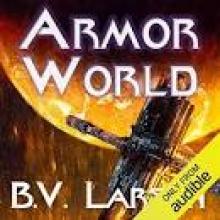 Armor World
Armor World Black Phoenix
Black Phoenix Edge World (Undying Mercenaries Series Book 14)
Edge World (Undying Mercenaries Series Book 14) Hell's Reach (Galactic Liberation Series Book 6)
Hell's Reach (Galactic Liberation Series Book 6) Battleship Indomitable
Battleship Indomitable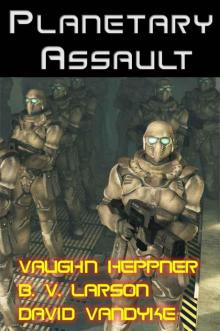 Planetary Assault (Star Force Series)
Planetary Assault (Star Force Series) Flagship Victory (Galactic Liberation Book 3)
Flagship Victory (Galactic Liberation Book 3) Star Carrier (Lost Colonies Trilogy Book 3)
Star Carrier (Lost Colonies Trilogy Book 3)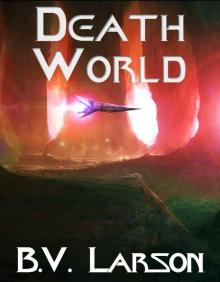 Death World (Undying Mercenaries Series Book 5)
Death World (Undying Mercenaries Series Book 5)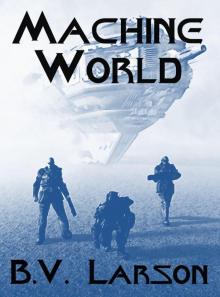 Machine World (Undying Mercenaries Book 4)
Machine World (Undying Mercenaries Book 4) Mech 2
Mech 2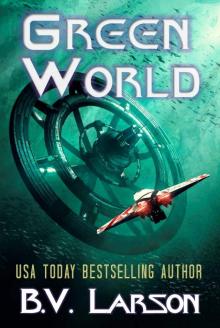 Green World
Green World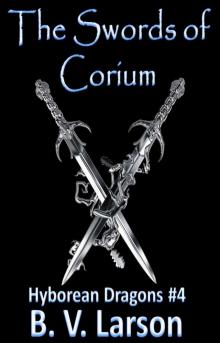 The Swords of Corium
The Swords of Corium Star Force 11: Exile
Star Force 11: Exile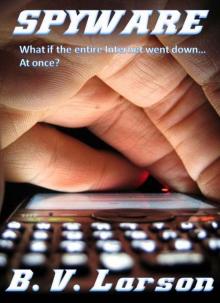 SPYWARE BOOK
SPYWARE BOOK Rogue World (Undying Mercenaries Series Book 7)
Rogue World (Undying Mercenaries Series Book 7) Blood World (Undying Mercenaries Series Book 8)
Blood World (Undying Mercenaries Series Book 8)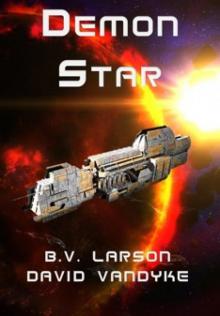 Demon Star
Demon Star Tech World (Undying Mercenaries Series)
Tech World (Undying Mercenaries Series) Dreadnought (Lost Colonies Trilogy Book 2)
Dreadnought (Lost Colonies Trilogy Book 2) Shifting
Shifting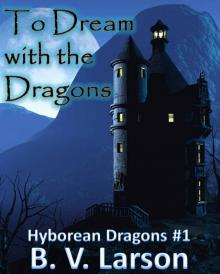 To Dream with the Dragons (Hyborean Dragons)
To Dream with the Dragons (Hyborean Dragons) Flagship Victory
Flagship Victory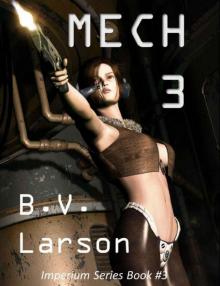 Mech 3: The Empress
Mech 3: The Empress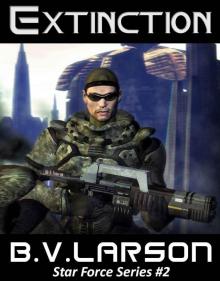 Extinction Ebook Full
Extinction Ebook Full Storm World (Undying Mercenaries Series Book 10)
Storm World (Undying Mercenaries Series Book 10)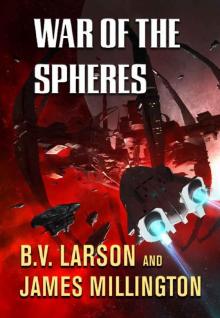 War of the Spheres
War of the Spheres MECH EBOOK
MECH EBOOK Storm Assault (Star Force Series)
Storm Assault (Star Force Series) Mech 4: The Black Ship (Imperium Series Book 5)
Mech 4: The Black Ship (Imperium Series Book 5)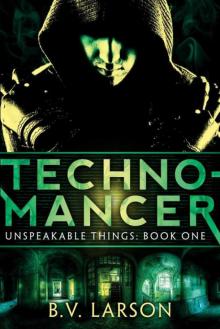 Technomancer
Technomancer Tech World
Tech World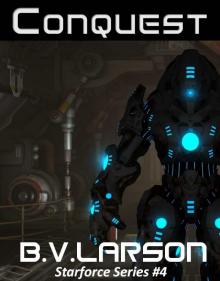 Conquest (Star Force Series)
Conquest (Star Force Series)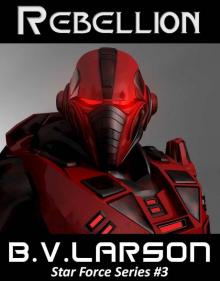 Rebellion sf-3
Rebellion sf-3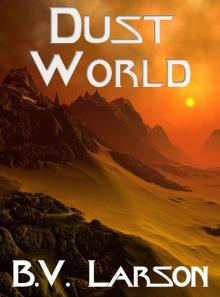 Dust World
Dust World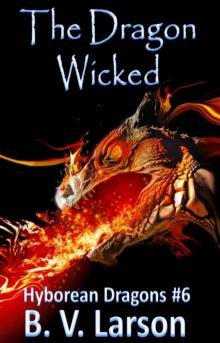 The Dragon Wicked
The Dragon Wicked Rebel Fleet
Rebel Fleet Alpha Fleet (Rebel Fleet Series Book 3)
Alpha Fleet (Rebel Fleet Series Book 3)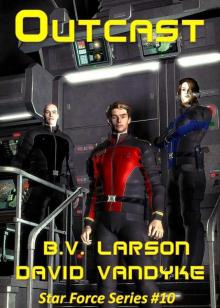 Star Force 10: Outcast
Star Force 10: Outcast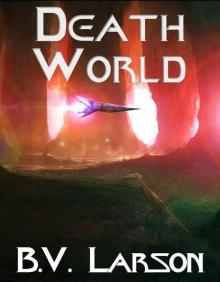 Death World
Death World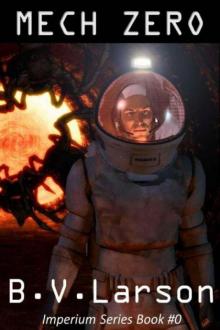 Mech Zero: The Dominant
Mech Zero: The Dominant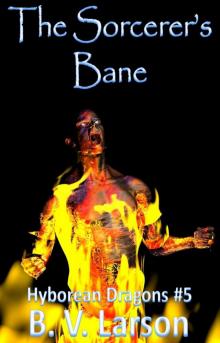 The Sorcerer's Bane
The Sorcerer's Bane Battleship Indomitable (Galactic Liberation Book 2)
Battleship Indomitable (Galactic Liberation Book 2) Haven Magic
Haven Magic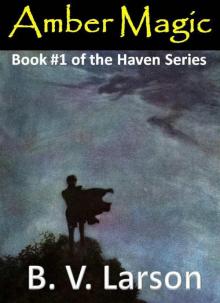 Amber Magic (Haven Series #1)
Amber Magic (Haven Series #1)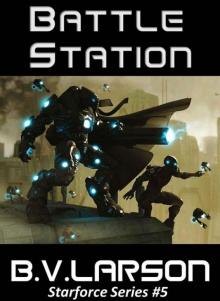 Battle Station sf-5
Battle Station sf-5 Of Shadows and Dragons
Of Shadows and Dragons Starfire
Starfire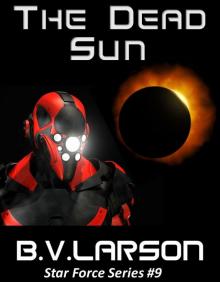 The Dead Sun (Star Force Series)
The Dead Sun (Star Force Series) Home World (Undying Mercenaries Series Book 6)
Home World (Undying Mercenaries Series Book 6) Star Force 12 Demon Star
Star Force 12 Demon Star Dream Magic
Dream Magic Home World
Home World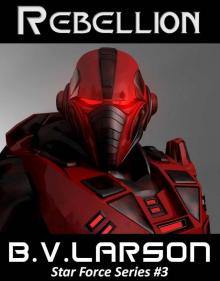 Rebellion Ebook Full
Rebellion Ebook Full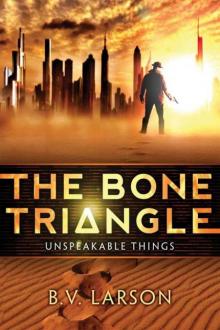 The Bone Triangle
The Bone Triangle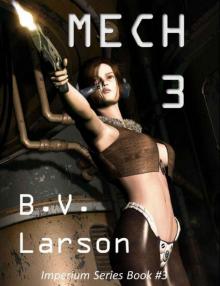 The Empress i-3
The Empress i-3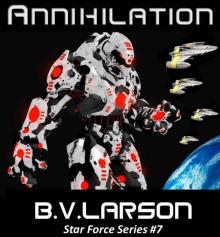 Annihilation (Star Force Series)
Annihilation (Star Force Series)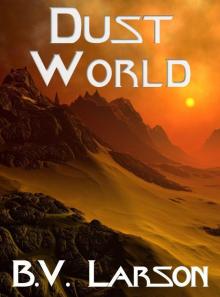 Undying Mercenaries 2: Dust World
Undying Mercenaries 2: Dust World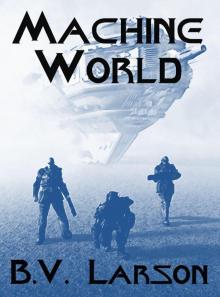 Machine World
Machine World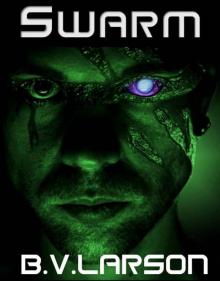 Swarm
Swarm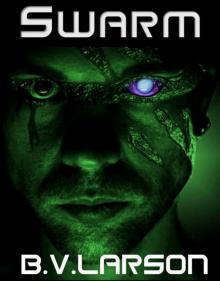 Swarm sf-1
Swarm sf-1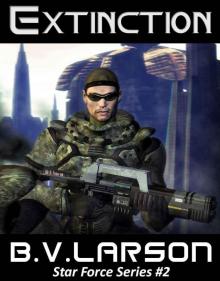 Extinction sf-2
Extinction sf-2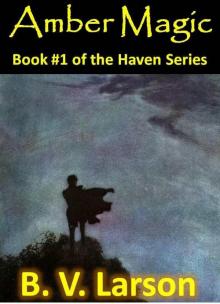 Amber Magic h-1
Amber Magic h-1 Starship Liberator
Starship Liberator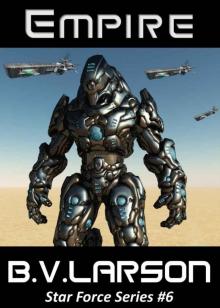 Empire Ebook Full
Empire Ebook Full The Dragon-Child
The Dragon-Child Battle Cruiser
Battle Cruiser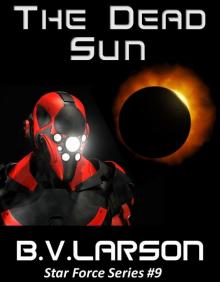 The Dead Sun
The Dead Sun Velocity
Velocity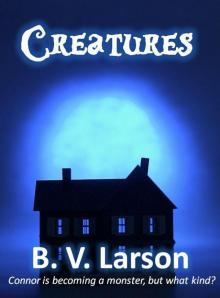 Creatures
Creatures Orion Fleet (Rebel Fleet Series Book 2)
Orion Fleet (Rebel Fleet Series Book 2)